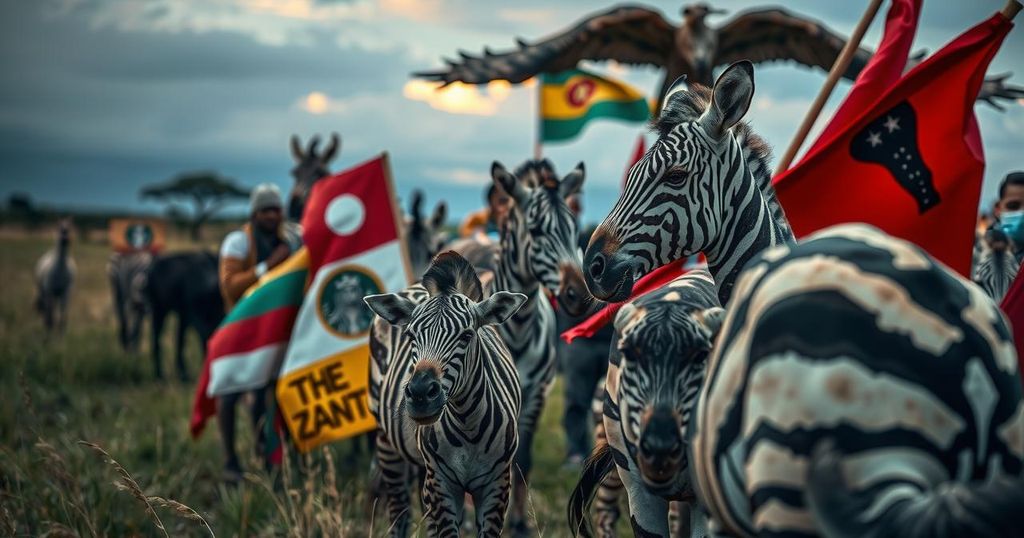Coalition Opposes Namibia and Zimbabwe’s Proposed Wildlife Culling Plans

Conservation groups have united to oppose Namibia and Zimbabwe’s plans to cull elephants and other wildlife amid severe drought. They argue that the measures threaten endangered species, undermine ecosystems, and do not effectively address food insecurity or human-wildlife conflicts. The coalition calls for humane, sustainable alternatives to these proposals, emphasizing the need for cooperation between governments and international aid organizations to protect wildlife and foster human coexistence with nature.
A coalition of conservation and animal welfare organizations, including World Animal News, Peace 4 Animals, Born Free USA, and the Born Free Foundation, has voiced serious apprehensions regarding the recent initiatives by Namibia and Zimbabwe to cull numerous elephants and other wild animals. These proposed culls, which include the slaughter of at least 1,002 animals in Namibia and around 200 in Zimbabwe, threaten not only the survival of these species but also the ecological balance of their habitats. The justifications presented for these drastic measures, such as alleviating food shortages in drought-stricken areas and mitigating human-wildlife conflict, are being criticized for masking the severe ramifications these large-scale killings would inflict on vulnerable wildlife populations. The coalition emphasizes that culling does not provide a sustainable solution for food security, nor does it effectively address conflicts between humans and wildlife. It further warns that stockpiling elephant tusks could exacerbate illegal ivory trade pressures and undermine international conservation efforts. Moreover, the implications for tourism, particularly in Zimbabwe where wildlife tourism is a significant contributor to the economy, could undermine local livelihoods. The organizations call on Zimbabwe and Namibia to abandon these culling plans and instead pursue innovative, humane alternatives that prioritize the coexistence of humans and wildlife, particularly given the ongoing drought affecting the region. Experts advocate for robust agricultural practices and food aid initiatives as more effective strategies for addressing food security, rather than resorting to culling. The coalition urges not only the African governments involved but also international donor agencies to condition their support on the adoption of humane and sustainable conservation practices. In summation, the culling of wildlife poses a direct threat not only to the animals themselves but also to critical ecosystems and the economies reliant upon them.
The issue at hand involves a troubling proposal from Namibia and Zimbabwe to cull significant populations of wildlife, specifically elephants, in response to severe drought conditions affecting their regions. These measures have sparked outrage among animal protection and conservation groups who argue that the long-term consequences of such actions may outweigh any short-term relief benefits purported by the governments. Historical context reveals that culling was abandoned in favor of more ethical wildlife management strategies, prompting concerns over a reversion to outdated practices that failed to improve human-wildlife relations. The coalition highlights a desperate need for sustainable approaches to address both human and wildlife needs during periods of environmental crises.
In light of the risks associated with the proposed wildlife culling in Namibia and Zimbabwe, it is crucial for the governments to reconsider their strategies and explore sustainable alternatives that prioritize the well-being of both human communities and wildlife populations. The coalition of organizations advocates for more ethical approaches to wildlife management, emphasizing the need to balance immediate human needs with long-term ecological health. Furthermore, international support should be contingent upon the implementation of humane and effective conservation measures, ensuring that wildlife populations are preserved for future generations.
Original Source: www.zawya.com






